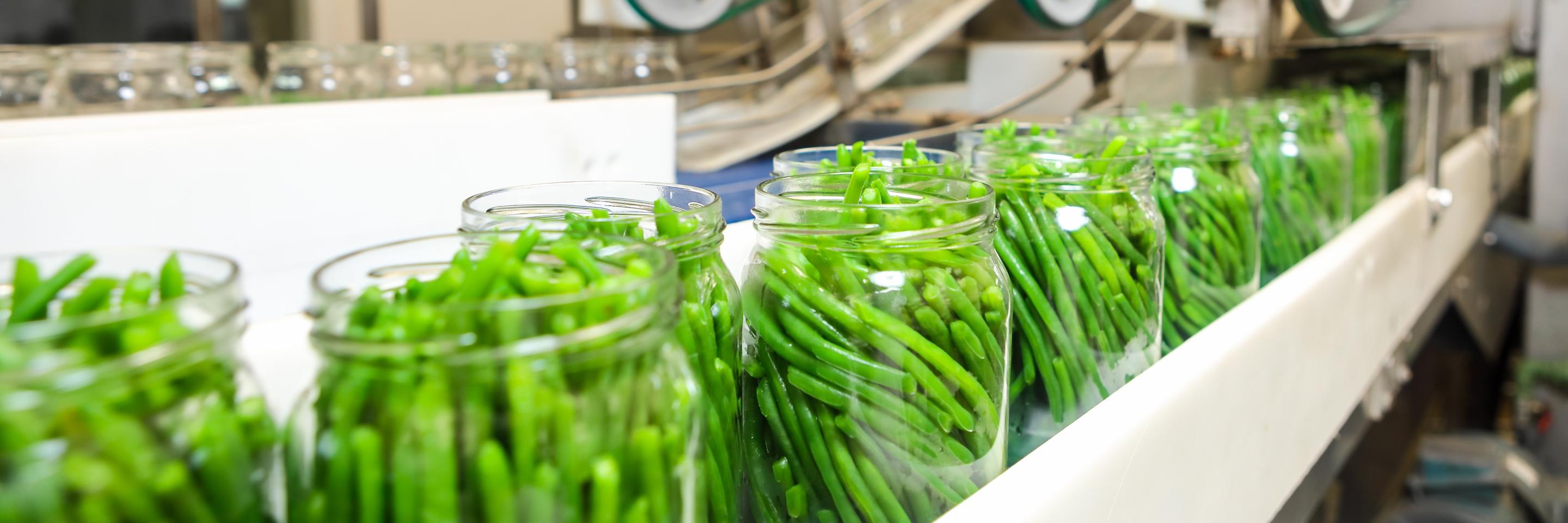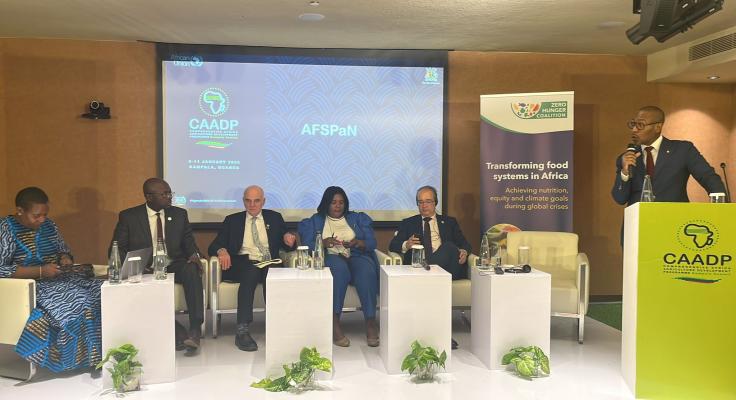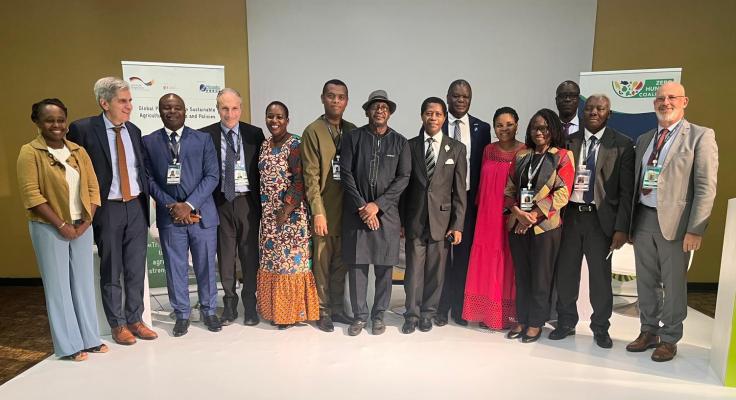
Helping small farmers thrive in Madagascar
Tahina Randriarilala is the director of quality and sustainable development for Lecofruit, a business exporting vegetables to supermarkets in Europe. Lecofruit processes and cans more than 12,000 tons of green beans, pickles, green and white asparagus, artichokes and baby corn sourced from small farmers located in the Haut Plateau of Madagascar.
With two factories located in the region, Lecofruit farmers harvest vegetables in the morning for processing and canning by the evening. According to Tahina, less than 15 hours elapse between the time when the vegetables are harvested to the moment when they are canned.
As part of research for its Evidence-based and costed roadmap for Madagascar, the Zero Hunger Coalition spoke to many different stakeholders involved in the agriculture and food value chain in the country. This included Tahina who explained how Lecofruit is committed to supporting small-scale farmers in Madagascar.
Lecofruit is an export company that purchases produce directly from farmers. It has worked with international development agencies to put in place programs that can help farmers increase their yields and diversify their income source. Its parent company, Groupe Basan, is also involved in developing solutions against malnutrition.
Supporting SDG 2
Each year, Lecofruit signs several contracts with 15,000 individual farmers for the supply of vegetables. These vegetables primarily consist of green beans which can be grown and harvested up to four times during the calendar year.
Improving the livelihood of farmers is one of the key benefits that Lecofruit provides. According to Tahina, “We cannot guarantee employment but do help farmers increase their revenue, especially during the times of the year when less money and rice is available.”
However, Lecofruit provides farmers with more than revenue. It provides quality seeds sourced from Europe as well as training for farmers. It employs 480 agro-technicians in villages to train the farmers and prepare the soil and compost. “We invest in our farmers to ensure that they are able to produce high quality, extra fine green beans. It is a win-win situation for the farmers as well as the company,” she notes.
Lecofruit is committed primarily to SDG 1 (no poverty) and SDG 2 (end hunger). “We are involved in the full value chain of production, from the sourcing of the seeds through to the harvest. We invest in our farmers and support them to complement their revenue. We are also looking for ways to make our production more environmentally sustainable,” notes Tahina.
Impact of climate change
Climate change has increased the frequency and intensity of extreme weather events. For Madagascar, the impact has been significant with a longer dry season and more intense tropical storms. It has also had implications for food security as food production decreases.
According to Tahina, climate change has shifted and shortened the rainy season and thus impacted production. “We now have difficulties harvesting in January. As a result, we are starting our production earlier but also ending earlier,” she remarks.
As a result of the shorter rainy season, water has become scarcer. Lecofruit piloted a project to introduce drip irrigation which had promising results. Unfortunately, the costs and problems related to theft among the small producers prevented the full roll-out of the program. Nevertheless, the system is completely operational in the farms owned by the enterprise. Another project on mobile solar pumping is underway to reduce the difficulty of fetching water from the river.
Transitioning towards sustainability
Tahina expressed her company’s support of the government’s roadmap to transform towards sustainable food systems. Lecofruit has followed in this direction as it increases its sustainable agriculture production practices.
To mitigate its carbon footprint, Lecofruit has implemented various measures, including refraining from using agricultural machinery for cultivation, minimizing fertilizer usage, and meticulously renewing and maintaining its entire collection truck fleet to curb pollution. Additionally, the company is actively working to offset CO2 emissions by annually planting nearly 55,000 trees and utilizing approximately 150,000 cubic meters of compost per year on production plots, thereby enhancing carbon sequestration in the soil.
Lecofruit seeks to reduce its reliance on pesticides and other chemicals. “We only use what is strictly necessary for yields and to produce our crops. We have also encouraged our farmers to adopt natural composting and provided training to show them how it can be done successfully,” she notes.
Results have been promising. On a plot where compost was added during the green bean cycle, the subsequent production yield increased two-fold given the high quality of the soil. “These results show that sustainable farming is not only good for the environment and the quality of the soil but also for farmers and their income, concluded Tahina.



